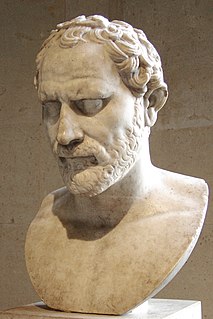A Quote by Terry Pratchett
The intelligence of the creature known as a crowd, is the square root of the number of people in it.
Related Quotes
The human brain finds it extremely hard to cope with a new level of abstraction. This is why it was well into the eighteenth century before mathematicians felt comfortable dealing with zero and with negative numbers, and why even today many people cannot accept the square root of minus-one as a genuine number.
It seems that the increased number of scientific workers, their being split up into groups whose studies are limited to a small subject, and over-specialization have brought about a shrinking of intelligence. There is no doubt that the quality of any human group decreases when the number of the individuals composing this group increases beyond certain limits... The best way to increase the intelligence of scientists would be to decrease their number.
Since we are not yet fully comfortable with the idea that people from the next village are as human as ourselves, it is presumptuous in the extreme to suppose we could ever look at sociable, tool-making creatures who are from other evolutionary paths and see not beasts, but brothers, not rivals, but fellow pilgrims journeying to the shrine of intelligence...The difference... is not in the creature judged, but in the creature judging.



































